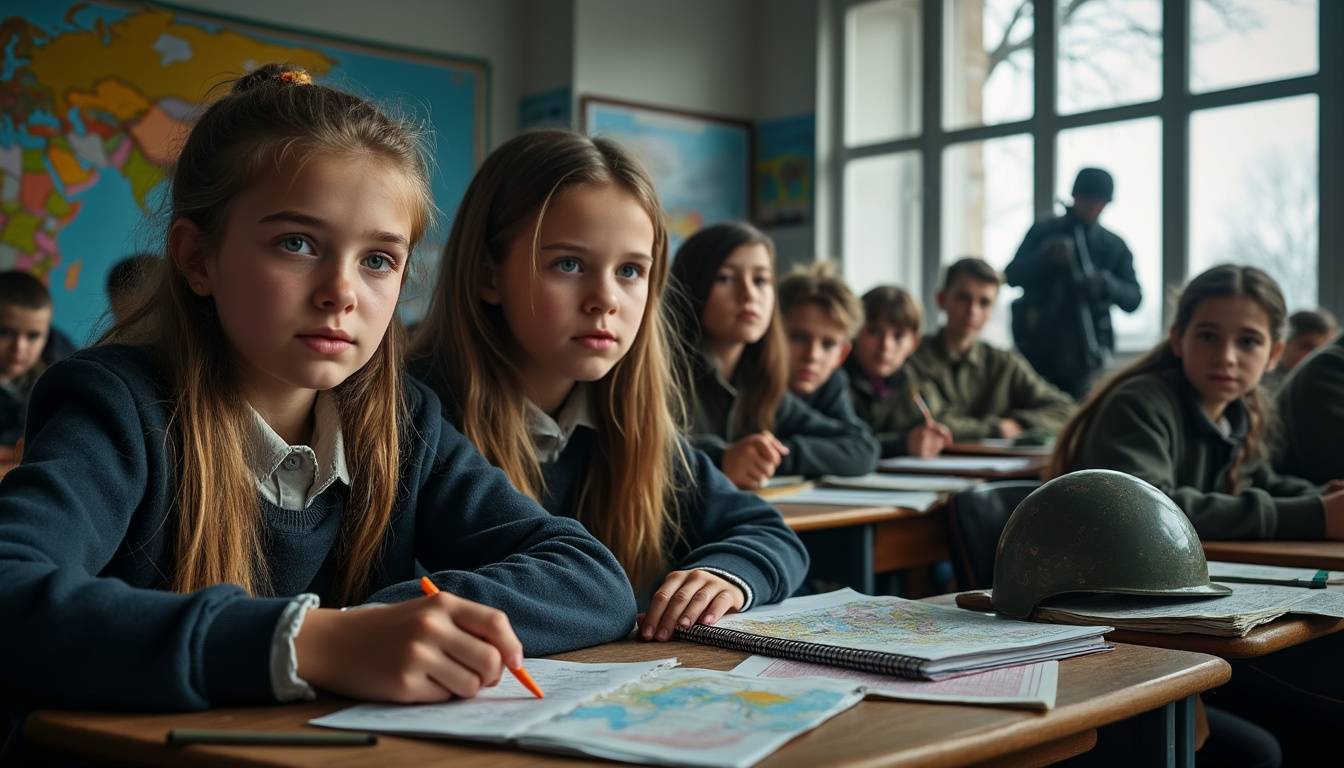Since the onset of the conflict between Russia and Ukraine in February 2022, troubling revelations have emerged about the fate of many Ukrainian children forcibly removed from their homes. Reports from multiple humanitarian organizations have uncovered a vast network of at least 210 facilities within Russia and occupied Ukrainian territories where these children face systematic re-education and military training. This alarming operation raises important questions about human rights, child protection, and the impact of ideological indoctrination on young lives.
Russia’s Large-Scale System of Re-Education and Militarization of Ukrainian Children
According to a comprehensive investigation by the Yale School of Public Health’s Humanitarian Research Lab (HRL), Russia has established an unprecedented infrastructure dedicated to the transformation of forcibly taken Ukrainian children. These facilities, spread across Russian territory and contested regions, serve as centers for ideological indoctrination and paramilitary training.
- More than 210 locations have been identified hosting abducted children since the full-scale invasion began.
- 62.9% of these establishments focus on re-education efforts aimed at erasing Ukrainian cultural identity.
- At least 18% provide militarization programs, including weapons training and paramilitary drills.
- Majority of the facilities are managed by the Russian government, underscoring the state’s direct involvement.
These findings expose a coordinated attempt to dismantle the connection between children and their Ukrainian heritage, enforcing a new narrative aligned with Russian ideologies. This system exhibits an uncommon logistical scope, capable of detaining tens of thousands of youths for extensive periods, heightening concerns among human rights groups such as Human Rights Watch, Amnesty International, and UNICEF.
Impact on Educational Rights and Child Development
The enforced separation disrupts children’s access to familiar educational frameworks, replacing them with curricula heavily skewed towards pro-Russian perspectives. This re-education often includes banning the Ukrainian language and revising history to suit political aims, thereby infringing on their rights as outlined by organizations like the Child Rights International Network and the International Committee of the Red Cross.
- Suppression of native language affecting cognitive and social learning.
- Historical revisionism undermining a child’s cultural identity and critical thinking.
- Psychological implications of forced assimilation and isolation from family.
These measures hinder children’s holistic development and threaten to traumatize entire generations. Groups such as Save Ukraine and War Child continuously advocate for global awareness and intervention to protect these vulnerable populations.
Global Attention and the Role of International Human Rights Organizations
The scale and systematic nature of these actions have drawn alarm from the international community. Several prominent agencies and watchdogs have condemned the practices as violations of international human rights laws and potential war crimes. For instance, the Memorial Human Rights Center and Freedom House have called for rigorous investigations and accountability.
- Continuous documentation of testimonies from escaped children and families.
- Pressure on Russian authorities via diplomatic and legal channels.
- Implementation of support programs for reintegration and trauma recovery.
Efforts are underway to map these facilities comprehensively and understand their functions. Recent collaborations between academic institutions and humanitarian groups seek to shed light on the network’s full extent, reinforcing advocacy efforts globally.
Practical Support and Educational Resources for Affected Children
Beyond highlighting abuses, agencies emphasize the importance of tailored educational support for children recovering from these experiences. Rebuilding academic skills and personal confidence requires holistic methodologies responsive to trauma.
- Programs fostering multilingual education to reintroduce Ukrainian language and culture.
- Development of curricula promoting critical thinking and resilience.
- Training educators on psychological first aid and trauma-informed teaching approaches.
- Community involvement initiatives to restore social bonds.
For parents and educators seeking guidance on protecting children’s educational rights amid geopolitical turmoil, resources such as this recent address on parental rights in children’s education underscore the critical need for advocacy and vigilance.
Broader Implications for Youth and International Education Policies
This alarming situation illustrates how education, often seen as a tool for empowerment, can be manipulated into an instrument of control and conflict. Organizations like Global Youth Justice emphasize the need for safeguarding educational environments from coercive political agendas.
- Recognition of education as a fundamental human right under international law.
- Strengthening international monitoring systems for educational integrity in conflict zones.
- Promotion of peace education programs to counteract indoctrination.
- Support for displaced children’s access to quality education regardless of location.
Reports on similar educational challenges in other conflict regions, such as within Afghanistan’s madrassa enrollments, offer comparative insights on the complexities of conflict-related educational disruption.
These layered challenges compel the global community to prioritize educational rights and child protection as cornerstones of humanitarian response and peacebuilding efforts, mitigating the long-term consequences of armed conflicts on young populations.
For detailed analysis of Russia’s indoctrination efforts, visit our dedicated report, and explore ongoing discussions about academic freedom and ethical responsibilities in wartime contexts.
Additional stories on education and social responsibility include a recent incident highlighting academic accountability you can read about here.


